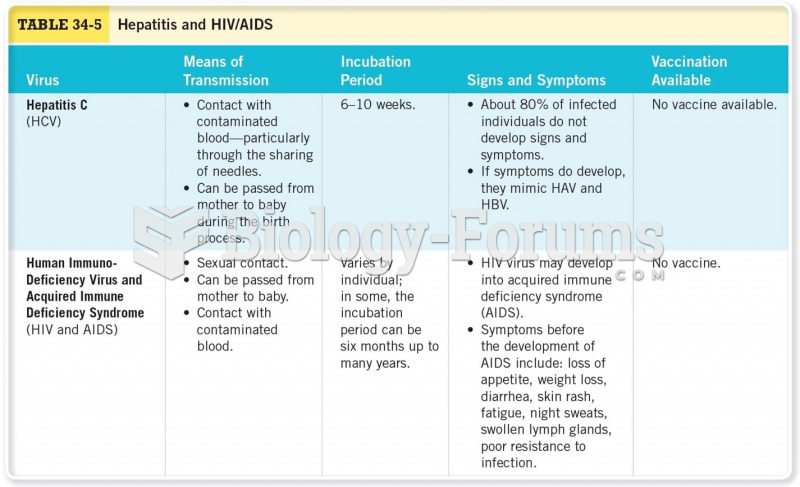|
|
|
Did you know?
Drying your hands with a paper towel will reduce the bacterial count on your hands by 45–60%.
Did you know?
There are approximately 3 million unintended pregnancies in the United States each year.
Did you know?
Everyone has one nostril that is larger than the other.
Did you know?
In inpatient settings, adverse drug events account for an estimated one in three of all hospital adverse events. They affect approximately 2 million hospital stays every year, and prolong hospital stays by between one and five days.
Did you know?
More than 34,000 trademarked medication names and more than 10,000 generic medication names are in use in the United States.






